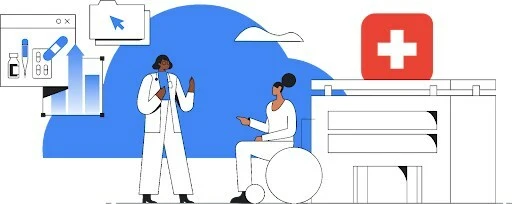Redox, a healthcare interoperability provider, and Google Cloud have announced a partnership to enhance healthcare data interoperability, making it easier for healthcare organizations to exchange healthcare data and make better decisions. The partnership aims to address the challenge of accessing and unifying data that is often siloed across multiple IT systems and organizations, which impedes the flow of data across healthcare systems, a process referred to as interoperability.
As part of the partnership, Redox will replicate its platform on Google Cloud, making its products and services available to Google Cloud customers. Healthcare leaders and administrators struggle to access information as it may be buried deep in the patient record or spread across databases that do not communicate with each other. Improving the flow and unification of data across healthcare systems is crucial in running organizations more effectively, improving patient care, and enabling people to live healthier lives.
Redox CEO Luke Bonney stated that the Redox platform was designed to support new applications and analytics tools with enterprise-scale data exchange across hospitals, clinics, health plans, healthcare information exchanges, networks, and other sources that form the foundation of healthcare data. By partnering with Google Cloud, healthcare providers and health plans can make use of their legacy system data in a single cloud database up to 80% faster than other solutions, according to Bonney.
Health plans, providers, life science, medical device companies, and digital health organizations can leverage Redox Healthcare Integration, now available on Google Cloud Marketplace, to incorporate standards like HL7v2, C-CDA, X12, DICOM, and more into FHIR, leveraging existing provider integrations and libraries. This allows organizations to use Google Cloud’s Healthcare API and Healthcare Data Engine to create an interoperable, longitudinal record of patient data, making it faster and easier for organizations to gain insights and improve patient outcomes.
Google Cloud’s Vice President of Strategic Industries, Chris Sakalosky, stated that the partnership aimed to help healthcare organizations tackle the most complex data harmonization challenges, unlock insights, and improve outcomes. Google Cloud delivers enterprise-grade solutions that leverage Google’s cutting-edge technology, all on the cleanest cloud in the industry, enabling customers in more than 200 countries and territories to transform their businesses digitally.
In addition, privacy and security are of the utmost importance in all aspects of Google Cloud’s products. Google Cloud’s implementation of reliable infrastructure and secure data storage supports HIPAA compliance, allowing customers to protect the access and use of patient data through layers of security, privacy controls, and processes.
Payers, providers, and digital health companies use Redox to produce differentiated experiences for patients and clinicians. Redox connects to over 4,500 healthcare organizations, providing a composable software experience across the healthcare ecosystem. With its single API, product teams can build whatever they can imagine, accelerating innovations that make healthcare data more useful than ever before.
The growing body of regulatory requirements in the U.S. reinforces interoperability of patient data as a priority for providers and health plans. The Office of the National Coordinator for Health Information Technology (ONC) Cures Act Final Rule requires that patients have secure access to their electronic health information to use and share, and the Centers for Medicare and Medicaid Services (CMS) Interoperability and Patient Access Rule requires that health plans participating in federal exchanges share claims data with patients electronically.
Takeaway
The partnership between Redox and Google Cloud is set to enable healthcare providers and health plans to maximize their use of legacy system data, simplify the exchange of healthcare data, and accelerate healthcare data interoperability. The partnership will help organizations run more effectively, improve patient care, and enable people to live healthier lives.



